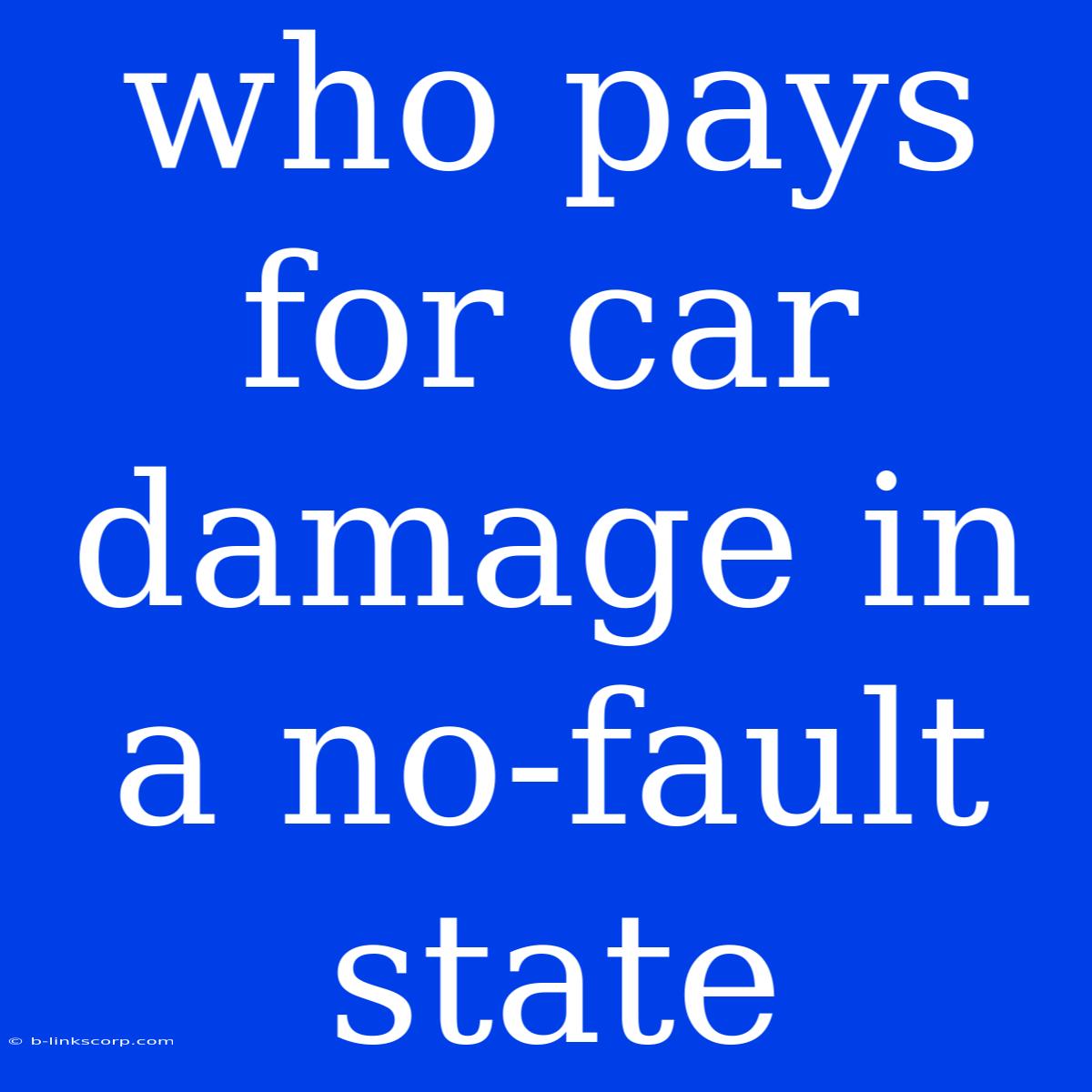Who Pays for Car Damage in a No-Fault State?
In a no-fault state, the focus is on your own insurance company covering your losses, regardless of who caused the accident. This system is designed to streamline the claims process and reduce the number of lawsuits. Let's break down the basics:
What Does "No-Fault" Mean?
Imagine you're in a car accident. In a no-fault state, you file a claim with your own insurance company, not the other driver's. This applies to personal injury and property damage to your vehicle.
What About the Other Driver?
While you file a claim with your insurance company, the other driver's insurance company is responsible for covering their own damages. They may also be held accountable for any damages exceeding your own coverage limits, depending on the specific circumstances.
How Does This Work in Practice?
- Your Insurance Company: Your insurance company pays for your medical expenses, lost wages, and car repairs, up to your policy's limits.
- Other Driver's Insurance: The other driver's insurance company will handle their expenses.
What About Fault?
Even though it's called "no-fault," it doesn't mean fault is completely disregarded. Fault is still determined, but it primarily affects:
- Your Insurance Premiums: If you are at fault for an accident, your insurance premiums may increase.
- Potential Subrogation: If your insurance company pays for your damages, they may try to recover those costs from the other driver's insurance company.
What Happens if There's a Dispute?
If you and the other driver can't agree on who was at fault, or if the amount of damages is contested, you might need to go through a formal claims process. This could involve:
- Mediation: An attempt to reach a settlement with the help of a neutral third party.
- Arbitration: A formal hearing where an arbitrator makes a binding decision.
- Litigation: Filing a lawsuit in court.
Important Considerations:
- No-Fault Threshold: Some no-fault states have a "threshold" for when you can sue the other driver for damages. This often involves a certain severity of injury.
- Personal Injury Protection (PIP): Your insurance policy likely includes PIP coverage, which covers your medical expenses, lost wages, and other related costs.
- Collision Coverage: This type of coverage pays for repairs to your car, regardless of fault.
In Conclusion:
While a no-fault system simplifies the initial claims process, it's important to understand your coverage limits, the other driver's responsibilities, and how fault may still play a role. It's best to familiarize yourself with the specific laws in your state to ensure you're properly protected.
Remember: Consult with an insurance professional or legal advisor for personalized advice regarding your specific situation.

